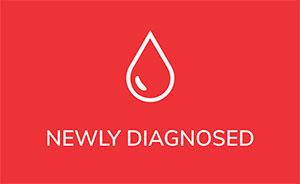Chronic lymphocytic leukemia (CLL) is tough.
There always seems to be some new mutations and more things that go wrong that we need to understand to best plan our treatment for our CLL.
One of the newer mutations that has received considerable research attention in the last few years in CLL is Notch1.
Notch1 is an important gene.
Take Away Points:
- Notch1 signaling helps regulate the life and death of cells
- Notch1 mutations are associated with several types of cancer
- Notch1 mutations are associated with poorer outcomes and more difficult to treat CLL.
- Notch1 mutations are seen more often in Richter’s Transformation
Among other things, Notch1 signaling plays a role in cell growth and division, maturation and self-destruction or apoptosis.
Besides CLL, T-cell acute lymphoblastic leukemia, and head and neck squamous cell carcinoma are all associated with Notch1 mutations.
In this press release, Dr Massard said: “Research suggests that the Notch signaling pathway plays a role in helping cancer cells to grow, divide and spread around the body; it is also involved in angiogenesis, the process by which tumors grow new blood vessels, and it may contribute to tumors becoming resistant to chemotherapy. Notch signaling that is unregulated due to mutations in the Notch protein is implicated in a number of cancers.“
An experimental Notch blocker LY3039478 has shown encouraging results in a number of difficult to treat cancers, but there is no data yet in CLL. Also the treatment can cause significant gastrointestinal issues, but it can be managed.
There is even an active phase 1 trial of LY3039478 with a CLL cohort, NCT01695005 that you can read about here.
In CLL, we have known for a long time that Notch1 mutations predict no benefit to adding rituximab (R), a monoclonal antibody or mAb to fludarabine-cyclophosphamide (FC) for the familiar chemo-immunotherapy (CIT) combination of FCR. Keep in mind that it was the addition of R to FC that was the very first therapy to show that it prolonged survival in CLL. But it turns out this is only for a subgroups of patients.
(If you need some background on rituximab and the other antibody therapies, I hope this helps from our basic treatment section: Most of our cancerous B cells have markers on the surface that can be attacked by antibodies that are manufactured to attach to an identical (monoclonal) site on our cells. The most common target, used by rituximab, ofatumumab, obinutuzumab and the experimental ublituximab is called CD20 and is found on all B cells, cancerous or not. These four intravenous drugs are all known as anti-CD20 monoclonal antibodies or mAbs.)
Now we find with new research that the lower level of efficacy is sadly also true when adding ofatumumab to FC, another Type1 CD20 monoclonal antibody.
This research abstract is accessible here.
Will the same lack of efficacy be found for obinutuzumab, a robust type 2 mAb or for ublituximab, a promising experimental type1 mAb?
We simply don’t know.
The basic science related to this is just starting to be understood. It seems that Notch1 mutations result in less expression of the surface marker CD20 that is the target for all these antibodies. Less targets means less binding means less killing of the cancer cells.
That basic science research is found here.
There are also prognostic implications and they are not good.
The time to first treatment is shorter in patients with Notch1 mutations as compared to patients with wild-type (non-mutated). Patients with Notch1 mutations display the same poor survival outcomes as those with the dreaded TP53 disruption.
Notch1 lesions are much more prevalent after disease progression to Richter’s transformation (31.0%) and in chemorefractory CLL (20.4–20.8% of cases) relative to newly diagnosed CLL (8.3%–11.3% of cases) (for more on Richter’s see Dr. Wiestner’s article here).
So should we all be tested for Notch1 for our CLL?
I think it’s worth considering especially if an antibody therapy is one of your options.
Brian Koffman, MD 7-25-17

















